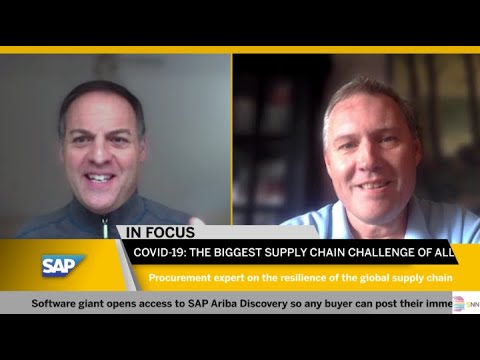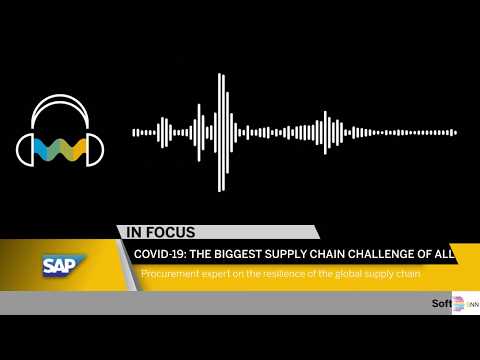Businesses are facing unprecedented challenges right now. With factories closing all around the globe, supply chains have been dramatically weakened. But procurement operations are proving to be more resilient than most expected.
The novel coronavirus is shining a spotlight on a business function often overlooked: procurement. In a world where empty shelves are quickly becoming the norm and governments struggle to provide medical supplies to healthcare workers, people wonder whether the products and provisions they need will continue to be available as the days go by.
“The reality is that procurement is the function that keeps the world going,” Chris Haydon, president of SAP Procurement Solutions, says.
Haydon spends most of his days making sure companies across the globe get access to the right suppliers while also identifying potential risks and alternative sources quickly.
“A lot of barriers are gone,” he says. “It’s not customer versus supplier anymore. With COVID-19, we’re all partners for the greater good.”

Time to Take Action
The scale of the disruption brought by COVID-19 is unprecedented and likely more damaging than a natural disaster such as an earthquake or tsunami. But supply chains have become more resilient over the years, learning important lessons after taxing crises brought about by recent geopolitical instabilities and natural disasters.
Haydon’s team is stepping up to the new challenge by providing free access to SAP Ariba Discovery, so any buyer can post their immediate sourcing needs and any supplier can respond to show they can deliver. As the world’s largest business-to-business marketplace, the network handles more than double the business volume of Amazon, Alibaba, and eBay combined. Recently, a customer was able to find a new source for hospital beds in just 35 minutes.
“We’re taking the uncertainty out of the process, linking the digital network with the human network, and using Experience Management to take a supply chain pulse,” Haydon shares. “This enables us to figure out where the suppliers are, what their sentiment is, and whether they have confidence in being able to deliver not just today, but also in six or eight week’s time.”
As the world adjusts to a new normal, the need to embrace the digital economy becomes clearer than ever.
To hear more from Haydon, listen to the full interview:




